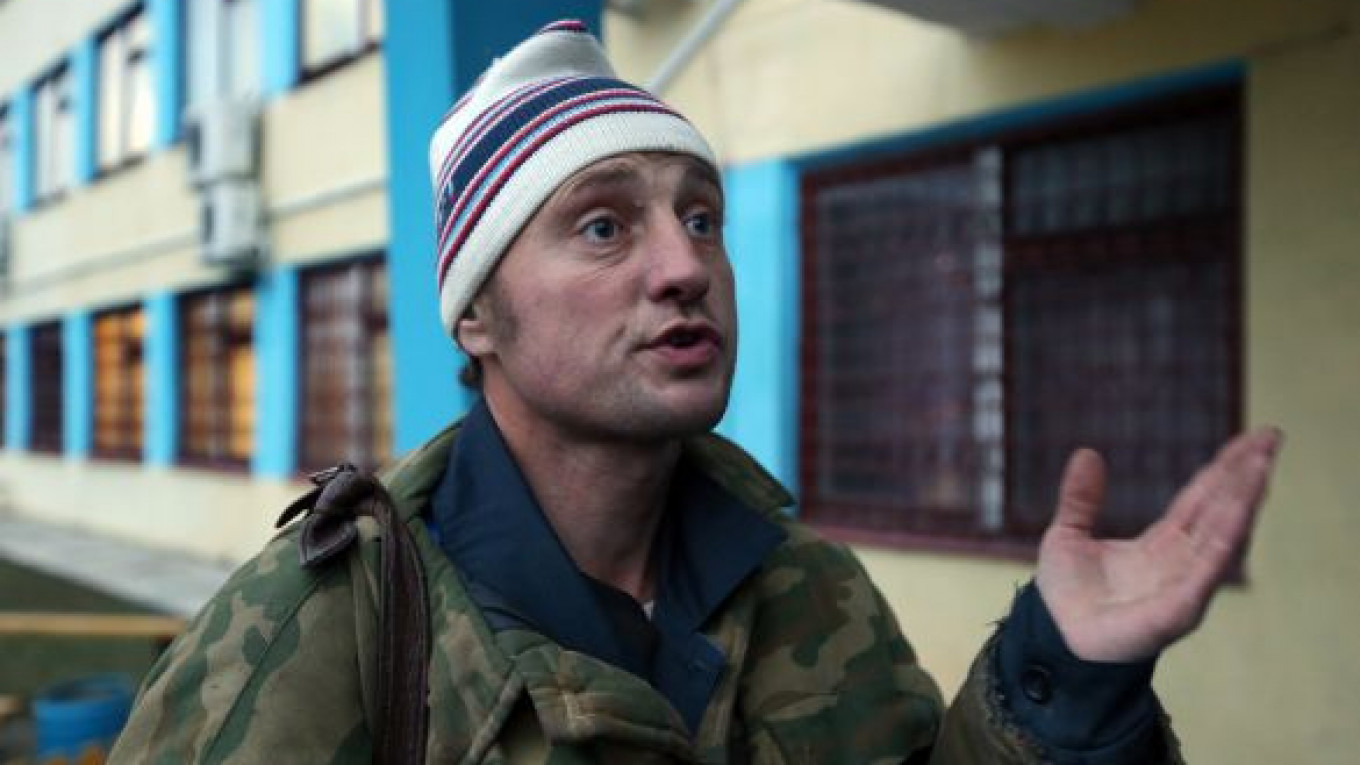BORISOV, Belarus — Vladimir Dodonov wants to flee Belarus for neighboring Russia before it becomes illegal to leave his job at a wood-processing plant.
Belarus’ authoritarian president, Alexander Lukashenko, wants to stem an exodus of qualified workers to Russia, so he started by banning workers in wood-processing industries from quitting.
Critics have compared the measure to serfdom and warned that it will only deepen Belarus’ economic troubles and fuel protests against Lukashenko.
Dodonov, 37, who earns the equivalent of $140 a month at the Borisovdrev plant, said that he could make several times as much in Russia and that he would have left earlier if he hadn’t had to care for his ailing mother.
“How can you survive on such a miserable salary?” he said. “Naturally, I’m thinking about leaving for Russia before they turn me into a slave.”
It could be too late.
“You will be sentenced to compulsory labor and sent back here if you leave,” Lukashenko said Friday during a visit to the plant, in the industrial city of Borisov, about 70 kilometers east of the capital, Minsk.
The president said his decree would apply to more than 13,000 employees of nine state-run wood-processing plants and also to between 2,000 and 3,000 construction workers involved in modernizing them.
Lukashenko said his decree would take effect Dec. 1. Even though he hasn’t signed it yet, Borisovdrev workers who tried to quit this week were barred from doing so by the administration under various pretexts.
Lukashenko promised to raise the average salary at the plant from $150 a month to between $400 and $500, roughly what it would be in Russia. He pledged to increase it further to $1,000 by 2015, but some of the workers were skeptical.
“My children want to eat now without waiting for 2015,” said Nikolai Khmelevsky, 42, who earns about $200 a month at the Borisovdrev plant. “I have been looking for another job, and now they will tie me here.”
Managers at the Borisovdrev plant, a set of grim-looking Soviet-era buildings, refused to comment. The plant and others like it are part of a conglomerate that is 100 percent owned by the state, as are most Belarussian industries. The wood-processing plants export most of their output to Russia and Europe.
Nikolai Pokhabov, the leader of an independent union in Borisov, warned that Lukashenko’s order could spark protests.
“The government is trying to solve problems with a stick at the workers’ expense,” he said. “But it fails to understand that threats and reliance on the stick will only push workers to flee the country or stage protests.”
Alexander Klaskovsky, an independent Minsk-based analyst, said Lukashenko may later try to expand the measure to other sectors of the economy.
“Amid a severe economic crisis, Lukashenko is launching a risky experiment that could later be spread to the entire economy,” Klaskovsky said. “It amounts to Lukashenko introducing elements of slavery in 21st-century Europe.”
About 1 million people in the nation of 10 million are estimated to be working abroad, most of them in neighboring Russia, Ukraine, Poland and Lithuania.
One of the ironies of the situation is that Russia, which is seen as a prized destination by Belarussian workers, prevented its people from working abroad during Soviet times through tight restrictions on exit visas.
A pariah in the West, Lukashenko often has tense relations with Moscow as well. Russia has been angered by his resistance to yielding control over Belarussian industries to Russian business. Lukashenko has kept most of the economy in state hands, but he is dependent on cheap energy and loans provided by Russia.
Last year, Belarus saw a sharp devaluation of its currency and inflation exceeding 100 percent after Lukashenko raised public sector wages in a populist move to ensure his re-election.
Lukashenko has managed to quell public discontent thanks to new loans from Russia, but analysts warn that the country may soon drift into a new crisis as it faces mounting foreign debt payments.
Russia may not be eager to provide more aid, which could be contingent on Lukashenko’s surrendering control over more economic assets.
“The Soviet-style economy has exhausted its resources, and the Kremlin has become increasingly reluctant to issue loans,” said Yaroslav Romanchuk, the head of Mises Research Center in Minsk. “Lukashenko has to invent abnormal motives in the absence of regular economic mechanisms.”
Related articles:
A Message from The Moscow Times:
Dear readers,
We are facing unprecedented challenges. Russia's Prosecutor General's Office has designated The Moscow Times as an "undesirable" organization, criminalizing our work and putting our staff at risk of prosecution. This follows our earlier unjust labeling as a "foreign agent."
These actions are direct attempts to silence independent journalism in Russia. The authorities claim our work "discredits the decisions of the Russian leadership." We see things differently: we strive to provide accurate, unbiased reporting on Russia.
We, the journalists of The Moscow Times, refuse to be silenced. But to continue our work, we need your help.
Your support, no matter how small, makes a world of difference. If you can, please support us monthly starting from just $2. It's quick to set up, and every contribution makes a significant impact.
By supporting The Moscow Times, you're defending open, independent journalism in the face of repression. Thank you for standing with us.
Remind me later.






